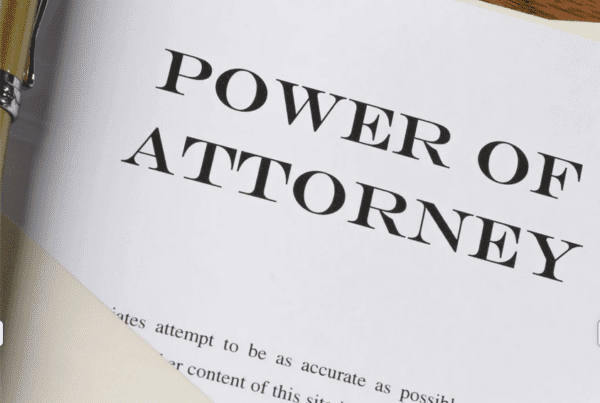When life takes an unexpected turn, who will make decisions on your behalf? Whether you’re facing a medical emergency, planning for long-term care, or simply want peace of mind, a Power of Attorney (POA) is a legal tool worth understanding. At A Business Law Firm, we often help individuals and families prepare for the future with thoughtful, effective legal planning. A Power of Attorney is one of the most essential documents in that toolkit.
Understanding the Basics
A Power of Attorney is a legal document that gives someone else the authority to act on your behalf. This person is known as your “agent” or “attorney-in-fact.” Depending on how the POA is written, your agent can handle legal, financial, or healthcare decisions for you. You, the person creating the document, are known as the “principal.”
Types of Power of Attorney
There are several types of Power of Attorney, each serving different purposes:
1. General Power of Attorney
This grants broad powers to your agent. They can manage bank accounts, buy or sell property, handle taxes, and more. It is often used for convenience, such as when you’re traveling or temporarily unavailable.
In South Carolina, a General POA becomes invalid if the principal becomes mentally incapacitated, unless it is a Durable Power of Attorney.
2. Durable Power of Attorney
This remains in effect even if you become incapacitated. It is a key part of estate planning and ensures that someone you trust can make decisions if you’re no longer able.
To be valid in South Carolina, a Durable POA must include specific language stating that it remains effective after incapacity.
3. Limited (or Special) Power of Attorney
This is used for specific tasks or time periods. For example, you might give someone authority to sign a real estate closing document while you’re out of town.
4. Healthcare Power of Attorney
Also called a Medical POA, this authorizes someone to make medical decisions on your behalf if you’re unable to do so. It’s often used in conjunction with a Living Will as part of your advance healthcare directive.
Why You Might Need a POA in South Carolina
Life is unpredictable. Here are a few common situations where a Power of Attorney can make all the difference:
- Medical Emergencies: If you’re in an accident or suffer a sudden illness, your agent can communicate with doctors and make healthcare decisions quickly.
- Dementia or Cognitive Decline: Planning ahead allows you to choose someone you trust before you’re unable to make decisions.
- Military Deployment or Travel: You may need someone to manage your finances or handle legal matters while you’re away.
- Real Estate Transactions: A Limited POA can simplify buying or selling property if you can’t be present in person.
Choosing the Right Agent
The person you appoint should be trustworthy, responsible, and capable of acting in your best interest. You can also name multiple agents or choose a successor agent in case your first choice is unavailable.
How to Set Up a Power of Attorney in Spartanburg, SC
South Carolina has specific legal requirements for creating a valid Power of Attorney:
- It must be in writing.
- The principal must be at least 18 years old and of sound mind.
- The document must be signed and witnessed by two adults.
- It must be notarized.
- A Durable POA must include specific language under the South Carolina Uniform Power of Attorney Act (effective January 1, 2017).
An attorney can help ensure your POA is valid, enforceable, and tailored to your needs.
Get Legal Help You Can Trust
A Power of Attorney is more than just a piece of paper, it’s a safeguard for your future. At A Business Law Firm, we help individuals and families across Spartanburg and the Upstate region create comprehensive estate plans that reflect their wishes and protect their interests.
Whether you’re ready to draft a Power of Attorney or have questions about how it fits into your long-term plans, we’re here to help.
Contact us at 864-699-9801 to schedule a consultation and take the next step in planning with confidence.






